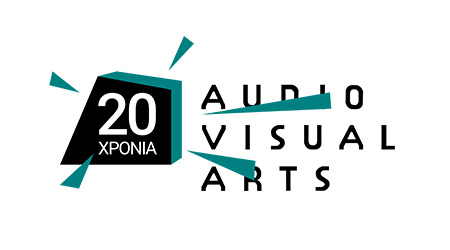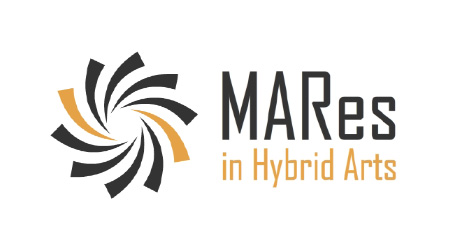Concerning courses with a failing grade:
- If a course was Compulsory (C) and became Optional (O) it will be updated from (C) to (O) in the academic transcripts of the students who did not get a passing grade.
- If a course was Optional (O) and became Compulsory (C) it will not be updated in the academic transcripts of the students in higher semesters who did not get a passing grade.
- If a course (C or O) is deleted it will be removed from the academic transcripts of the students who did not get a passing grade.
- If a course (C or O) changes semester it will be updated in the academic transcripts of the students who did not get a passing grade.
2. Recommended and Enforced Prerequisites:
One course (or more) can be a recommended prerequisite (code within parentheses) or an enforced prerequisite (code without parentheses) for another course. In the second case, a new enforced prerequisite course will appear during the first year as a recommended prerequisite (with its code within parentheses) and from the second year onward will appear as a regular enforced prerequisite.
Note 1: A course can only be a recommended prerequisite of another course within the same academic year.
Note 2: A new enforced prerequisite remains as recommended prerequisite for both compulsory and optional courses in the academic transcripts when a student had previously enrolled in them. In these cases the student will have to apply for exception during course registration in the Office of the Secretary of the department.
3. Teaching Units (TU):
Each course corresponds to one (1) or more Teaching Units (TU), which are calculated based on teaching hours and lab exercises: 1 TU per teaching hour (lecture or laboratory course) + 1 to 3 TU, for 1 to 3 hours of lab exercises (in this case the TU can be less (eg. 1 TU for 3 hours of lab exercises), but never more than the lab exercises time with a 3 hours maximum).
4. Degree classification calculation:
The degree classification is calculated with TU according to the following formula where Σ(x)/Σ(wf), όπου x=wf*course grade. Weight factor wf is calculated according to the following Table:
| TU | wf |
| 1-2 | 1 |
| 3-4 | 1,5 |
| 4+ | 2 |
| Undergraduate Thesis | 2 |
5. European Credit Transfer System (ECTS):
European Credit Transfer System (ECTS) is based on the workload (1 ECTS = 30 hours) required from each student in order to achieve the objectives of the degree studies program (intended learning outcomes, knowledge, capacities and skills). The system has been applied at the Department of Audio and Visual Arts since the academic year 2008-2009. Each student enrolls in as many Compulsory (C) and Optional (O) courses as to obtain a minimum of 60 ECTS per academic year, independently of their distribution within its 2 academic semesters.
6. Definition of TU, ECTS and Recommended / Enforced Prerequisites:
TU, ECTS and recommended / enforced prerequisites are defined for each course of the study programme by the Temporary General Assembly of the Department after a proposal of the Undergraduate Programme Committee. The Indicative Curriculum published in the website presents all courses per academic year and the recommended / enforced prerequisites, ECTS and TU for each course.
7. Number of ECTS for the acquisition of the Undergraduate Degree:
For the acquisition of the Undergraduate Degree a student must obtain a passing grade, within the exam periods, in a certain number of courses from the Programme of Studies, in order to obtain a minimum number of ECTS. The duration of undergraduate studies at the Department is five academic years; therefore for the acquisition of the degree a minimum number of 300 ECTS is required.
If a student has more than 300 of ECTS he / she must choose in a written declaration which courses should not be considered for the calculation of the degree classification (based on TU and according to the weight factor in paragraph 4). Those courses and corresponding grades will be referred in the student’s academic transcript accompanying the diploma.
8. Course Registration:
Course registration period is at the beginning of each semester, in precise dates decided by the deanery. Failures to register for two consecutive semesters will result in the student’s withdraw. Withdrawing requires a declaratory act issued by the Dean.
Attention: failure to register in a course within the registration period will consequently delay for one year the possibility of enrollment in that course.
Registration in compulsive and optional courses integrated in the winter term is only possible during the course registration period of that term and, respectively, enrollment in courses integrated in the spring term is made in the registration period of the spring term. Registration in a course with enforced prerequisites is possible once the student has obtained a passing grade in the course considered as background knowledge. During their registration students should consider the minimum 60 ECTS required per academic year. Students have the possibility to enroll in courses integrated in multiple semesters of the Indicative Curriculum, if all prerequisites have been successfully completed. ECTS from these courses are credited in the semester where the course is integrated according to the Study Programme. Compulsory and Optional courses without a passing grade until the end of the supplementary exams period require new registration during the next academic year. In this case any optional course can be substituted by another optional course, if all prerequisites have been successfully completed.
Attention: With the substitution of an optional course a student might lose the right to receive a textbook for free in case the total of all compulsory courses and previous registration in optional courses do not exceed 300 ECTS.
9. Connection between the ECTS system and the previous system:
Courses successfully completed with a passing grade before the introduction of the ECTS system are attributed with the ECTS amount according to the Indicative Curriculum of 2008-2009. Exceptions:
a) Courses that have been abolished are attributed with 4 ECTS.
b) Courses taken in another Department are attributed with their original ECTS according to the indicative curriculum of the department in which the course is integrated.
10. Course duration:
If, during a specific academic year, for any reason, in a course, the teaching period is inferior to thirteen (13) weeks, it will be excluded from the examination schedule due to insufficient number of classes delivered, or, in the case this course has been included in the examination schedule any grading outcome will be considered null and therefore the grade will not be taken in account in the degree classification calculation.
11. English courses:
A prerequisite for the degree is the certified knowledge of English proven by the submission of a state language certificate at least level B2 or the equivalent, or a certificate of attendance for English seminars. The Ionian University offers English lessons.
12. Individual Project (PRO750):
The Individual Project is considered as an introductory course to the Undergraduate Thesis courses and therefore follows the Guidelines for Academic Essays.
13. Practical Work (PRO851):
The Practical Work course follows the Internal Regulation of Internship Programme.
14. Undergraduate Thesis (PRO050):
The Undergraduate Thesis courses follow the Thesis Regulations. Enforced Prerequisite for the enrollment is the completion of a minimum of 210 ECTS by the end of the winter semester or 230 ECTS after the exams of September. Note that the Undergraduate Thesis for the students enrolling in the academic year 2004-2005 is credited 40 ECTS (instead of 30 ECTS).
15. Finalists:
A student is considered a finalist once he / she has:
a) Obtained 250 ECTS (240 ECTS for the students enrolling in the academic year 2004-2005)
b) The approval of his / her Undergraduate Thesis Proposal by the Temporary General Assembly of the department.
c) Registered in all courses required to obtain the degree.
A finalist can be examined in all courses that he / she is enrolled, independently if they are integrated in Winter or Spring terms, during both winter and spring examination periods. For this the finalist has to deliver an application at the Office of the Secretary of the department.










